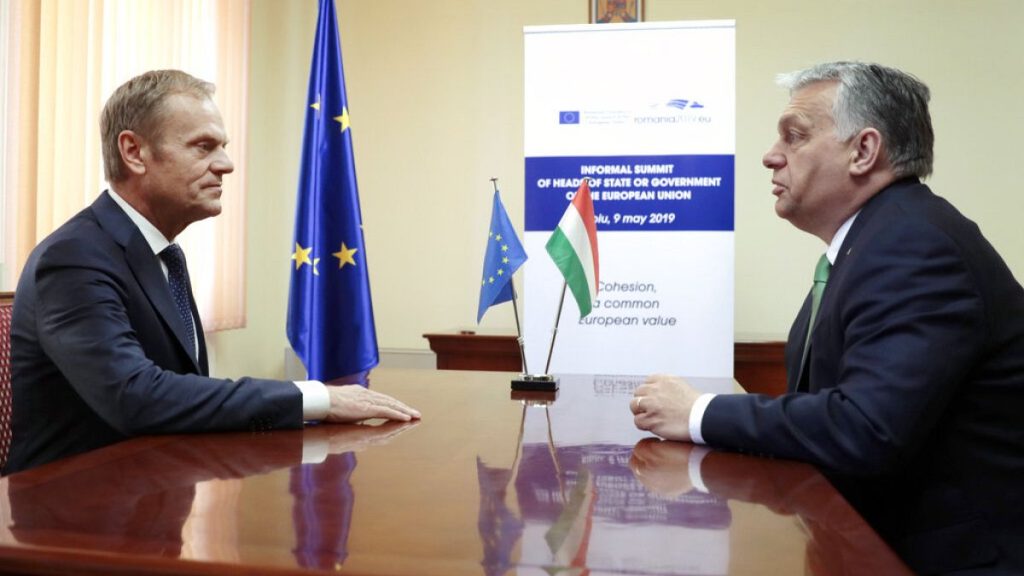The recall of Poland’s ambassador to Budapest marks a significant escalation in the diplomatic tensions between Poland and Hungary, two nations that have traditionally maintained close ties within the European Union. The catalyst for this diplomatic rift is the asylum granted by Hungary to Marcin Romanowski, a former Polish deputy justice minister and current member of the ruling Law and Justice Party (PiS). Romanowski is facing allegations of corruption and misuse of public funds during his tenure in the previous PiS government, charges which he denies. Poland has issued a European arrest warrant for Romanowski, and his decision to seek asylum in Hungary has been met with strong condemnation from Warsaw, with the Polish Foreign Ministry labeling Hungary’s decision “offensive to Polish citizens and authorities.”
The granting of asylum to Romanowski has raised numerous legal and political questions within the context of the European Union. Poland views Hungary’s action as a blatant disregard for the existing European arrest warrant and a violation of the principle of mutual legal assistance between member states. From Poland’s perspective, Hungary’s decision undermines the very foundation of judicial cooperation within the EU and sets a dangerous precedent that could be exploited in the future. Moreover, the political nature of the asylum grant further complicates matters, with Poland accusing Hungary of interfering in its internal affairs and shielding a politician accused of serious crimes.
The diplomatic standoff between Poland and Hungary underscores the growing divergence in their political trajectories. While both countries are governed by right-wing parties, their approaches to the rule of law and their relationship with the EU have increasingly diverged. Poland’s ruling PiS party has been embroiled in numerous disputes with the EU over judicial reforms, media freedom, and other issues related to democratic norms. Hungary, under the leadership of Prime Minister Viktor Orbán, has also faced criticism for its democratic backsliding and its close relationship with Russia, particularly in the context of the ongoing war in Ukraine. The Romanowski affair has exposed the growing cracks in the relationship between these two formerly allied nations and raises questions about the future of their cooperation within the EU framework.
The implications of this diplomatic crisis extend beyond the bilateral relationship between Poland and Hungary. The case highlights the challenges faced by the EU in enforcing its legal frameworks and upholding shared values among member states. The principle of mutual recognition of judicial decisions and the execution of European arrest warrants are crucial for maintaining the integrity of the EU’s legal system. Hungary’s decision to grant asylum to Romanowski challenges this principle and raises concerns about the effectiveness of the EU’s mechanisms for addressing such disputes. The EU will need to find a way to navigate this delicate situation and reaffirm its commitment to the rule of law and judicial cooperation within the bloc.
The Polish government’s decision to recall its ambassador is a clear sign of its displeasure with Hungary’s actions and a demonstration of its determination to pursue legal avenues to extradite Romanowski. The recall of an ambassador is a significant diplomatic step, signifying a serious breach in relations. It suggests that Poland intends to maintain pressure on Hungary and explore all available legal and diplomatic options to secure Romanowski’s return and ensure he faces the charges against him. The duration of the ambassador’s recall remains indefinite, indicating that the resolution of this diplomatic crisis is likely to be a protracted process.
The Romanowski affair has exposed underlying tensions and diverging political priorities between Poland and Hungary, adding another layer of complexity to the existing challenges facing the European Union. The case raises fundamental questions about the balance between national sovereignty and adherence to EU legal frameworks, and the effectiveness of the EU’s mechanisms for resolving disputes among member states. The outcome of this diplomatic standoff will have significant implications for the future of EU integration and the relationship between these two key Central European nations. The EU’s response to this crisis will be crucial in determining whether it can effectively uphold its core values and maintain the integrity of its legal system.














